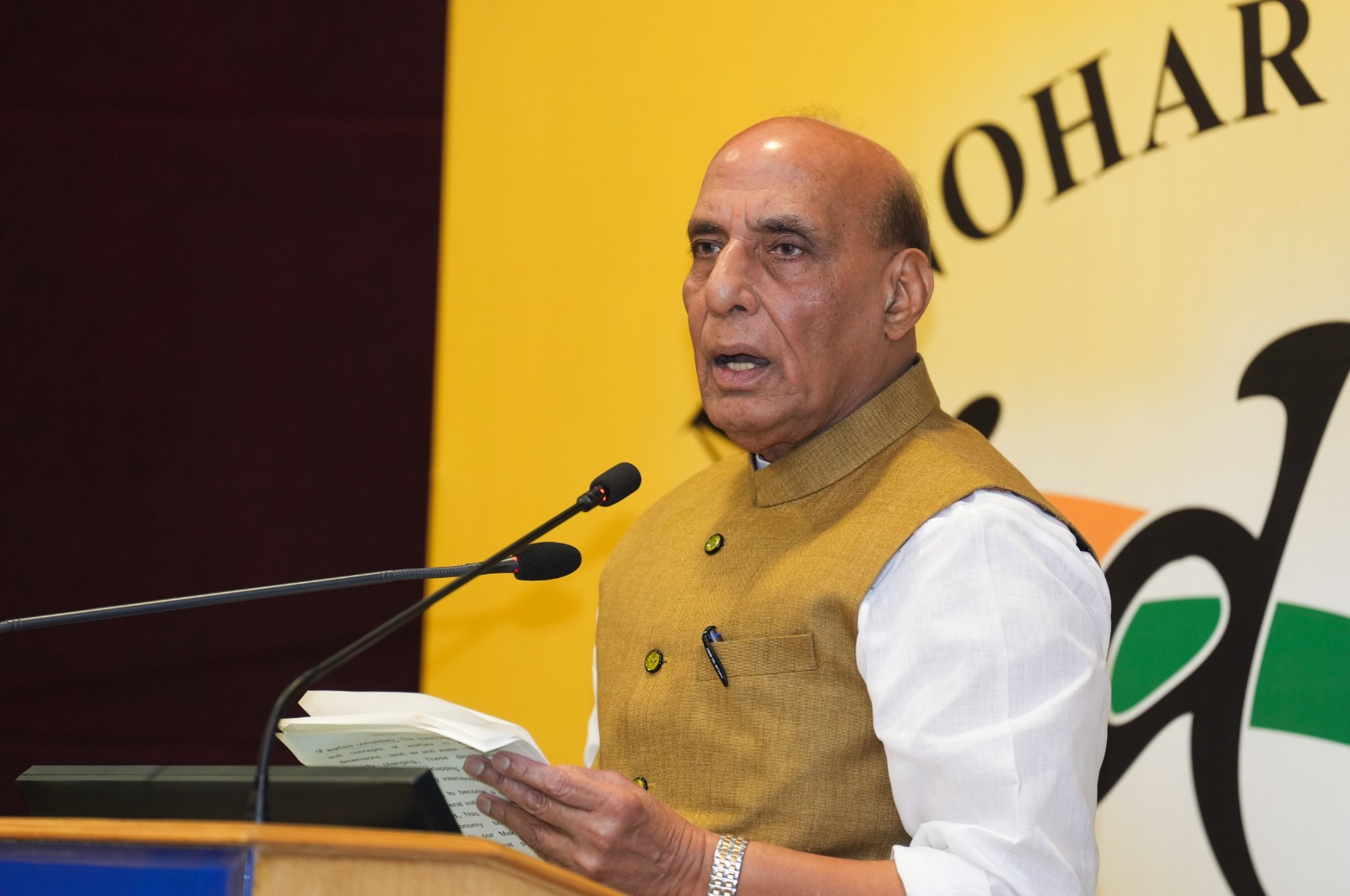Adaptive Defence: India’s Response to Emerging Security Challenges (GS Paper 3, Internal Security)

Introduction
- India is increasingly focusing on the creation of an "Adaptive Defence" system to address evolving national security concerns.
- With the world rapidly changing due to technological advancements, geopolitical shifts, and unconventional threats, it is essential for India’s defence capabilities to adapt in real-time.
- Recent statements from India’s Defence Minister highlighted the urgent need to not only address current security challenges but also anticipate future threats using innovative technologies and strategic foresight.
What is Adaptive Defence?
Adaptive Defence refers to a strategic military approach where a nation’s defense systems continuously evolve in response to new and emerging threats. Unlike traditional methods that react to existing threats, Adaptive Defence prioritizes forecasting future dangers and developing flexible, resilient, and technologically advanced solutions.
Key components of Adaptive Defence include:
- Situational Awareness: Understanding and responding to dynamic and unpredictable environments.
- Flexibility: Ensuring that military strategies can be swiftly altered to meet emerging threats.
- Resilience and Agility: The capacity to recover from setbacks and adapt to unforeseen circumstances.
- Integration with Emerging Technologies: Incorporating technologies like AI, drones, and robotics into defence strategies to stay ahead of adversaries.
Evolving Nature of Warfare
Modern warfare is no longer confined to traditional battlefields. Emerging technologies are reshaping the landscape of global security, requiring nations to adjust their defence strategies accordingly.
- Hybrid and Grey Zone Warfare: Conflicts today involve a mix of conventional military actions and non-traditional tactics such as cyberattacks, economic sanctions, and misinformation campaigns.
- Technological Transformation: AI, drones, and other autonomous systems are revolutionizing combat operations, making it necessary for countries to develop countermeasures quickly.
- Psychological Warfare: The increasing reliance on information warfare and media manipulation means that the ability to control narratives and public opinion has become just as important as physical defense.
India's Initiatives for Adaptive Defence
India has taken significant steps to adapt to emerging security challenges by embracing cutting-edge technologies and strengthening institutional frameworks:
- Institutional Reforms: The establishment of the Chief of Defence Staff (CDS) and the integration of India's army, air force, and navy into a unified command structure are pivotal steps toward joint military operations and strategic coherence.
- Self-Reliance in Defence: Programs such as "Make in India" and "Aatmanirbhar Bharat" emphasize indigenous defence production, reducing reliance on foreign suppliers.
- Theaterisation of Armed Forces: This strategy integrates the three military services into a single operational architecture, promoting synergy across air, land, and sea.
- Positive Indigenisation List and FDI: To encourage domestic defence production, the government has published a list of defence items that should be manufactured indigenously, along with initiatives to attract foreign direct investment (FDI) in defence.
Emerging Technologies in India's Defence Strategy
India is actively pursuing the integration of emerging technologies into its defence systems to maintain an edge over potential adversaries. These include:
- Artificial Intelligence (AI): India is investing in AI to improve military systems, with platforms like AIRAWAT facilitating research and development. AI is expected to play a role in early warning systems, autonomous weapons, and cyber defence.
- Drones and Swarm Technology: India is working to develop drones and related technologies, positioning itself as a global hub for drone innovation. The use of drone swarms—autonomous groups of drones working together in a coordinated fashion—could revolutionize surveillance and combat operations.
- Cybersecurity: With the increasing threats posed by cyberattacks, India is developing robust cybersecurity protocols and considering the formation of a dedicated cyberforce.
- Quantum Technology and Blockchain: The launch of the National Mission on Quantum Technologies and Applications (NMQTA) and the development of a National Strategy on Blockchain are key steps in strengthening India’s technological capabilities for future defence needs.
Security Challenges for India
India faces multiple emerging security challenges that necessitate the creation of an adaptive defense strategy:
- Artificial Intelligence (AI) and Autonomous Weapons: The development of Lethal Autonomous Weapons (LAWs) that can operate without human intervention poses significant challenges. These weapons could alter the rules of engagement and increase the risks of accidental escalation.
- Space Warfare: The growing militarization of space, including the development of anti-satellite (ASAT) weapons, poses a threat to satellite-based communications, navigation, and surveillance systems.
- Cyberattacks: Cyber warfare can disrupt critical infrastructure, including military systems and nuclear facilities, making cybersecurity a priority for national security.
- Geopolitical Tensions: Conflicts in the South China Sea, the ongoing Russia-Ukraine war, and the possibility of nuclear escalations in North Korea and other hotspots increase the potential for regional instability.
India’s Strategic Goals for the Future
To counter these emerging threats, India is focused on a few critical areas:
- Enhanced Technological Integration: Integrating AI, robotics, and cybersecurity into India’s defence systems will ensure that the country remains prepared for future conflicts.
- Strengthening Cyber Defences: India should establish a dedicated force to combat cyber threats, similar to China’s Cyberspace Force, while also investing in resilient cyber infrastructure.
- Anti-Drone Systems: As drones become more prevalent in modern warfare, India must continue to expand its anti-drone capabilities, with an emphasis on defence systems to counter UAV-based threats.
- Space Security: Protecting space-based assets is becoming increasingly important. India should continue to develop ASAT capabilities and invest in space infrastructure resilience.
- Psychological Warfare and Counter-Disinformation: As hybrid warfare increasingly involves information manipulation, India should build capabilities to counter disinformation and safeguard public trust in times of conflict.
Conclusion
- In an era where security threats are diverse and constantly evolving, India’s commitment to building an Adaptive Defence system is a strategic necessity.
- The country’s focus on indigenization, technological integration, and institutional reforms will enable it to tackle emerging challenges effectively.
- By anticipating future threats and continuously adapting its defense capabilities, India can strengthen its national security in an increasingly uncertain world.

